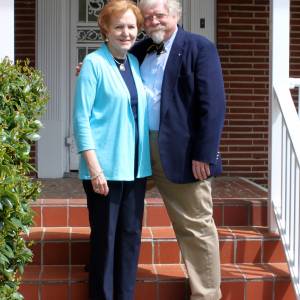We are displaying the American flag today
It’s Veterans’ Day here in the United States.
I am proud of my country. I am proud of my flag, a flag that represents the country, its history, its citizens, and its future. I am proud to have served my country, especially in a time of internal conflict, turmoil, and turbulence—during the Vietnam War and the 1967 Gulf War.
I served during a time in which people my age were rioting in the streets, marching against and in disgust with me, and people like me. I’ve walked through the Baltimore airport and listened to people slander my uniform and question my motives for being in uniform, this coming home on leave after being on the crew of a ship that retrieved the bodies of U.S. sailors from the Mediterranean after they were attacked by Israeli gunboats and aircraft.
I served with sailors who experienced the horror of Vietnam, one First Class Corpsman so traumatized he walked around my ship tossing imaginary hand grenades at imaginary Viet Cong. He loudly nightmared every night about the Marines he tried to help during hand-to-hand combat in Vietnam’s jungles.
All that was 60 years ago. As the years have passed, I’ve retained my hope and my faith in the ultimate good of what my country is supposed to be and how hard we try to reach those ideals, ideals we have striven toward since the founding fathers signed the Declaration and the Constitution.
The ultimate good of our republic is based upon the will of the governed. As our country has become increasingly heterogeneous or diverse, the will of the governed has likewise become more diverse. This increasing diversity makes more difficult determining the best strategies for reaching the goals in which we say we believe.
James Madison foresaw the problem in his Federalist Paper when he wrote:
The smaller the society, the fewer probably will be the distinct parties and interests composing it; the fewer the distinct parties and interests, the more frequently will a majority be found of the same party; and the smaller the number of individuals composing a majority, and the smaller the compass within which they are placed, the more easily will they concert and execute their plans of oppression. Extend the sphere, and you take in a greater variety of parties and interests; you make it less probable that a majority of the whole will have a common motive to invade the rights of other citizens; or if such a common motive exists, it will be more difficult for all who feel it to discover their own strength, and to act in unison with each other. Besides other impediments, it may be remarked that, where there is a consciousness of unjust or dishonorable purposes, communication is always checked by distrust in proportion to the number whose concurrence is necessary (http://avalon.law.yale.edu/18th_century/fed10.asp).
Madison argues that the republican structure of the proposed union, our large, diverse union, must rise above factions and sectionalism for the good of the whole, but the factions and sectionalism may be good for the health of the whole in protecting the rights of all.
The Federalist Papers are remarkable and timely documents even though written more than 200 years ago. Unfortunately, as our educational system has deemphasized the study of history, civics, and other social sciences in favor of Science, Technology, Engineering and Math (STEM) over the last generation, most of our younger generation do not have an understanding of the core values and ideals on which our political system rests. I will agree that STEM education may, indeed, prepare a young person for a job after school, but the real issue continues to be, does STEM prepare one for life as a citizen of our republic?
I have watched with a little dismay, but not real surprise, the postings in social media after the recent presidential election. Whether one agrees with the election result, those results are the voice of a system structured to protect the rights and the voice of all citizens—the majority as well as a minority.
It is our system!
I am a veteran who with thousands of other young men and women served to protect and to perpetuate the system. We do not always agree with or support the short-term outcomes of our system, but the long-term is worth dying to protect. I see in my 50-year-old memory almost every day the bodies of those young men that summer day in 1967 on the deck of my ship, and I ask myself almost every day, was their sacrifice worth it?
I’ve lived so much life, experienced so many joys (and disappointments) in the years they did not have. Was their sacrifice worth it? I think so. I hope so.
I thought about those dear young men Tuesday when I voted. I thought about them too when I watched the protestors shouting their displeasure with our system and the results of the system. I’m thankful the protestors and those who disagree with the election results have the right to disagree and to protest, but I’m also concerned with the apparent widespread ignorance of how the system works. And, importantly the why on which our system rests.
I’m a veteran. I voted. I hope you voted. If you did not vote, shame on you!
And, whatever, keep smilin’

Comments
Sign in or get an account to comment.


